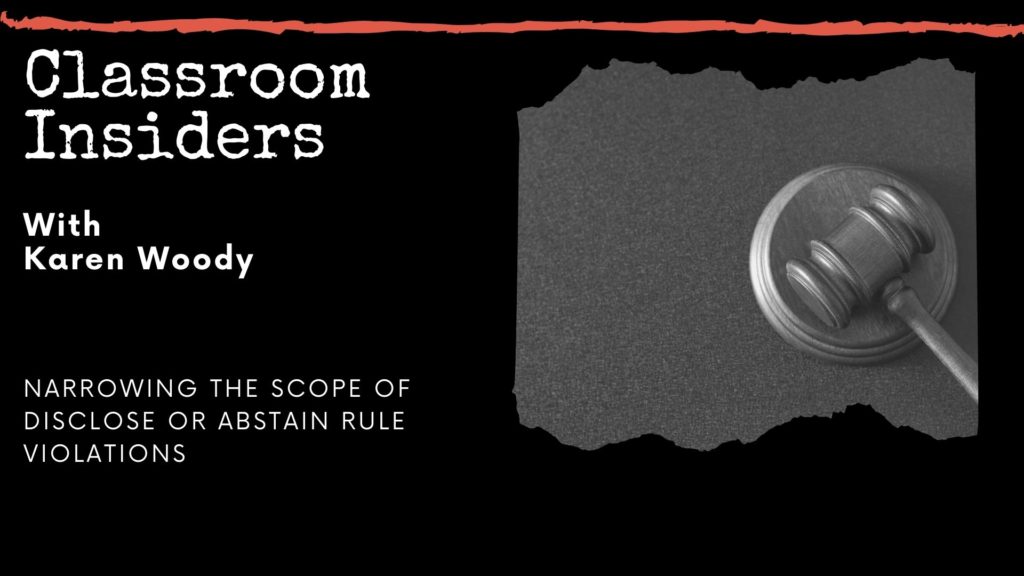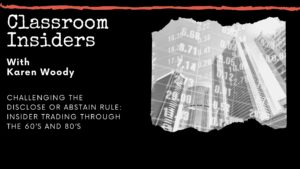
Staats Smith was a judicial intern with the Delaware Chancery Court this past summer, and plans to work with one of the large Delaware firms during the next. He is a 2L student at Washington and Lee. In this episode of Classroom Insiders, Staats talks about the pivotal case of Dirks v. SEC.
Chiarella was an employee for a financial printing publication, which was used by the company to disclose their material nonpublic information. To avoid premature disclosure, the company developed a code to prevent its employees from trading on the information before it went public. However, Chiarella was able to crack the code, and made hefty profits on his trades as he was always leading it before the news broke. He was convicted for violating the disclose-or-abstain rule by the District Court, which was affirmed by the Second Circuit. Justice Powell decided to reverse the conviction; it was in his view that Chiarella owed no duty to the sellers or shareholders, as he was not an insider or a fiduciary.
Any fiduciary relationship Chiarella had with his employer was not considered due to the application of a judicial waiver, Staats claims; an argument not briefed or argued is deemed waived. The theory of misappropriation was not brought up at all in the District Court, so it could not even be considered on review.
Resources
Karen Woody on LinkedIn






